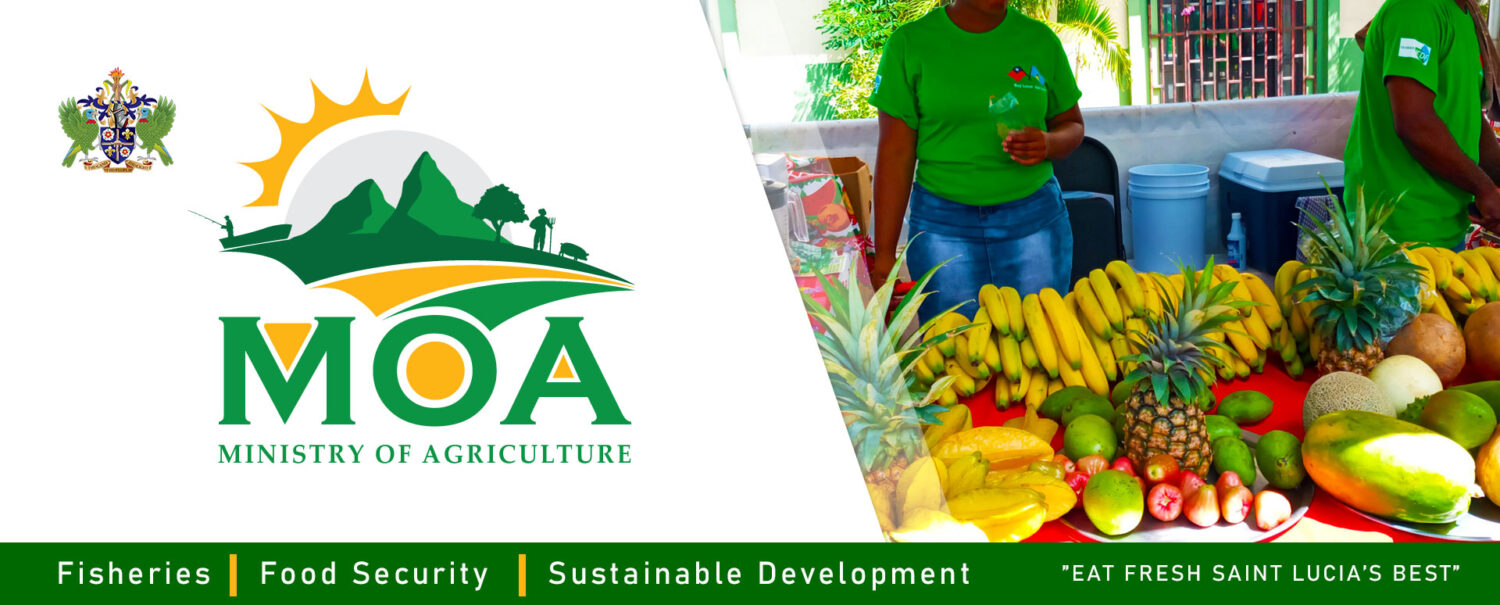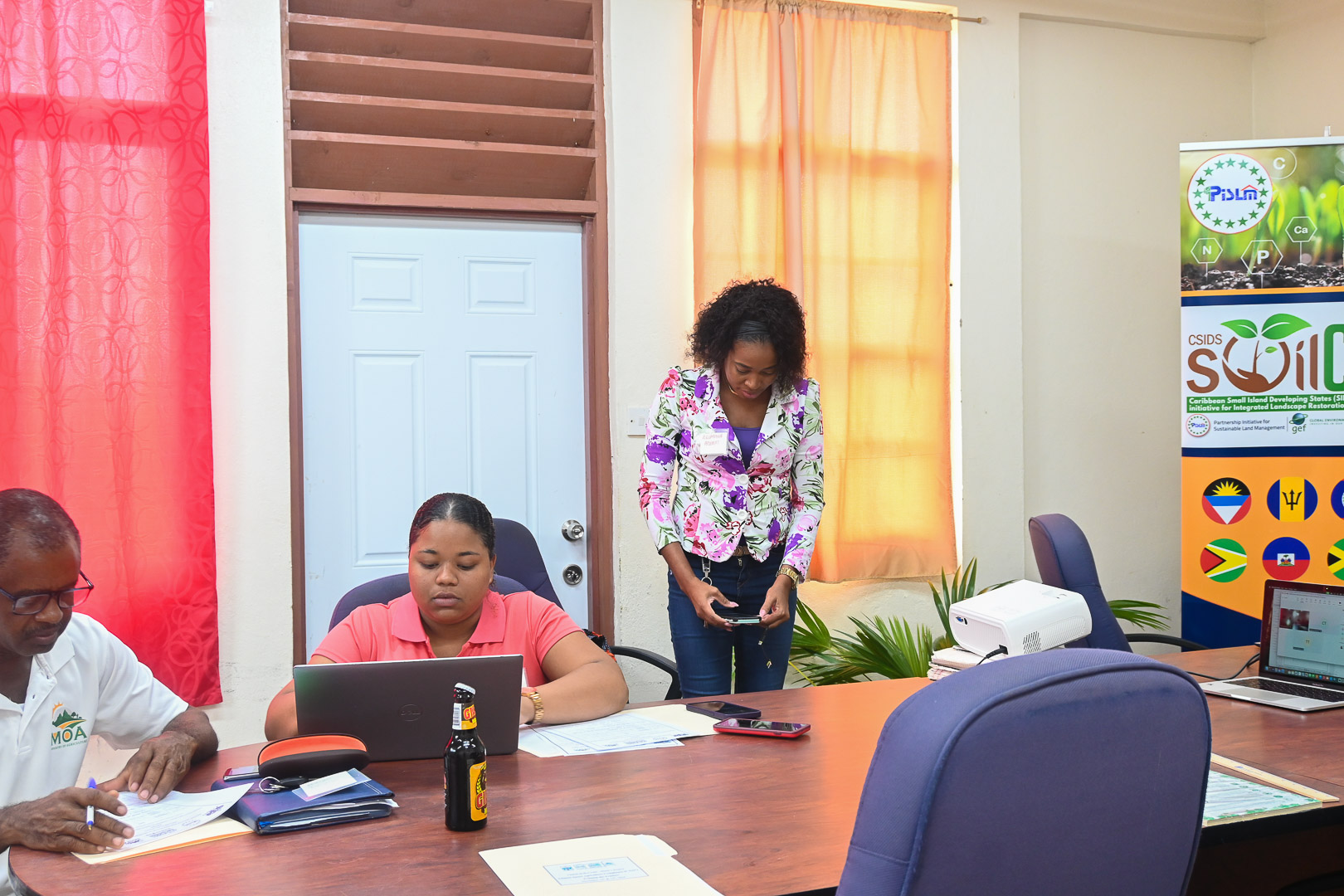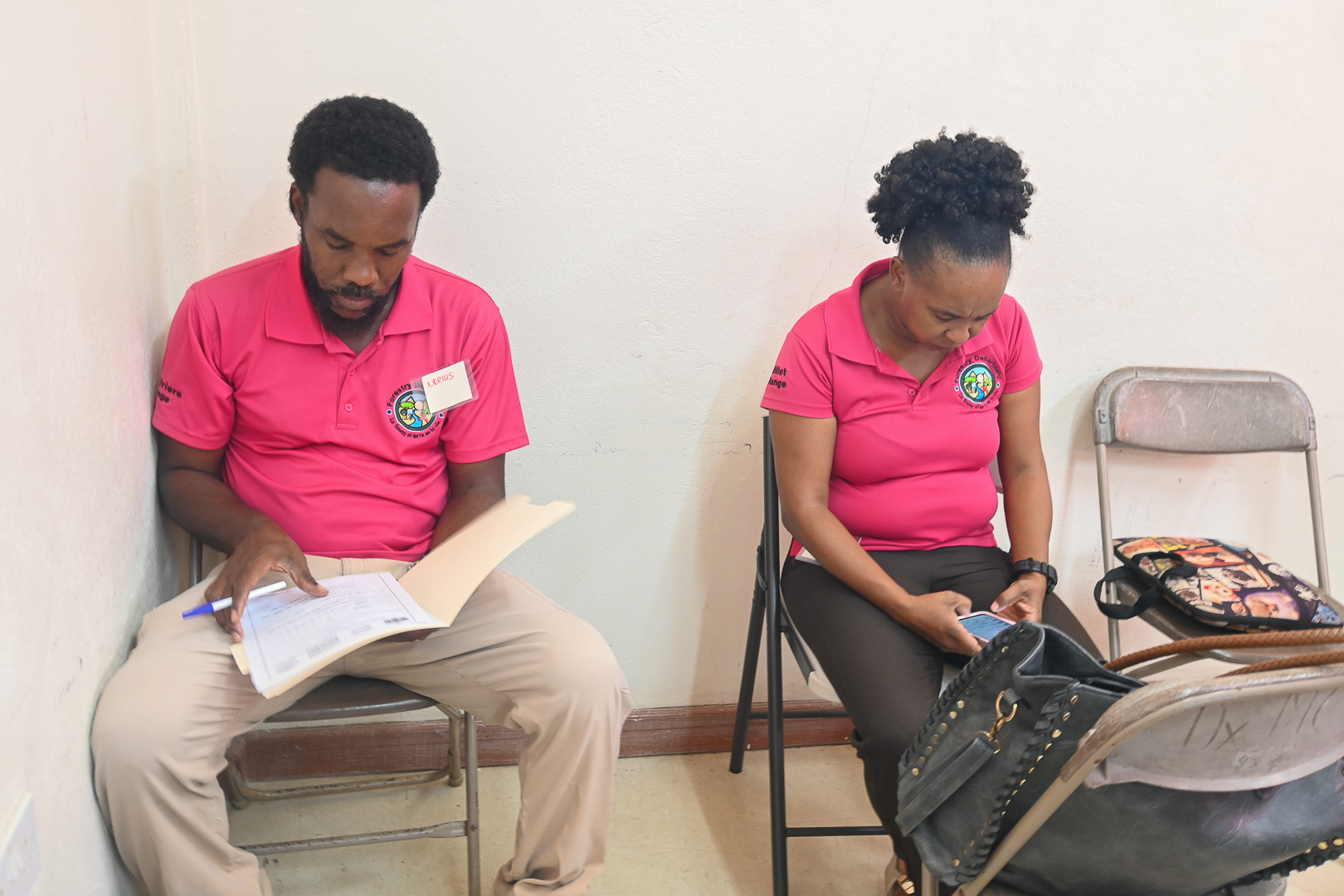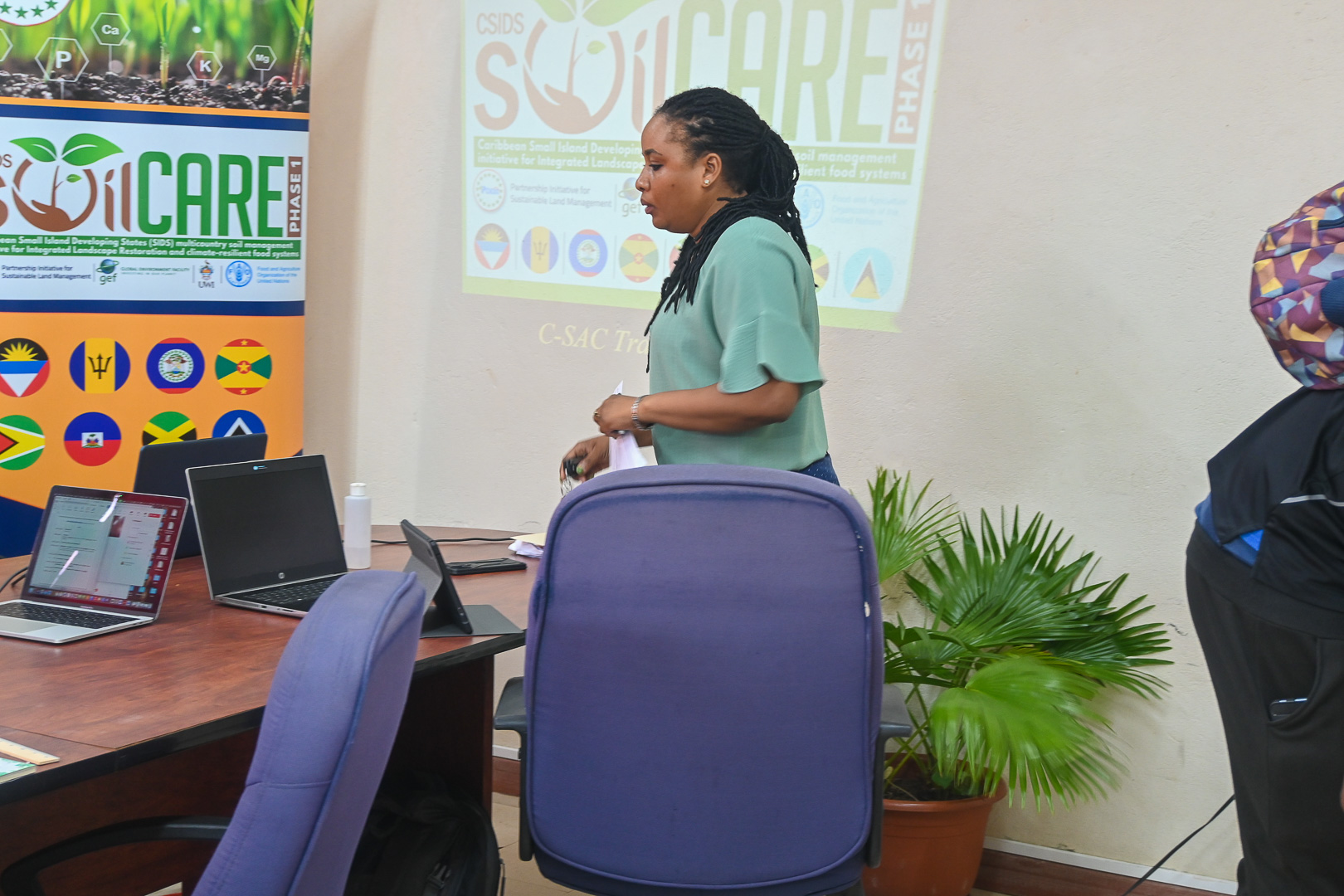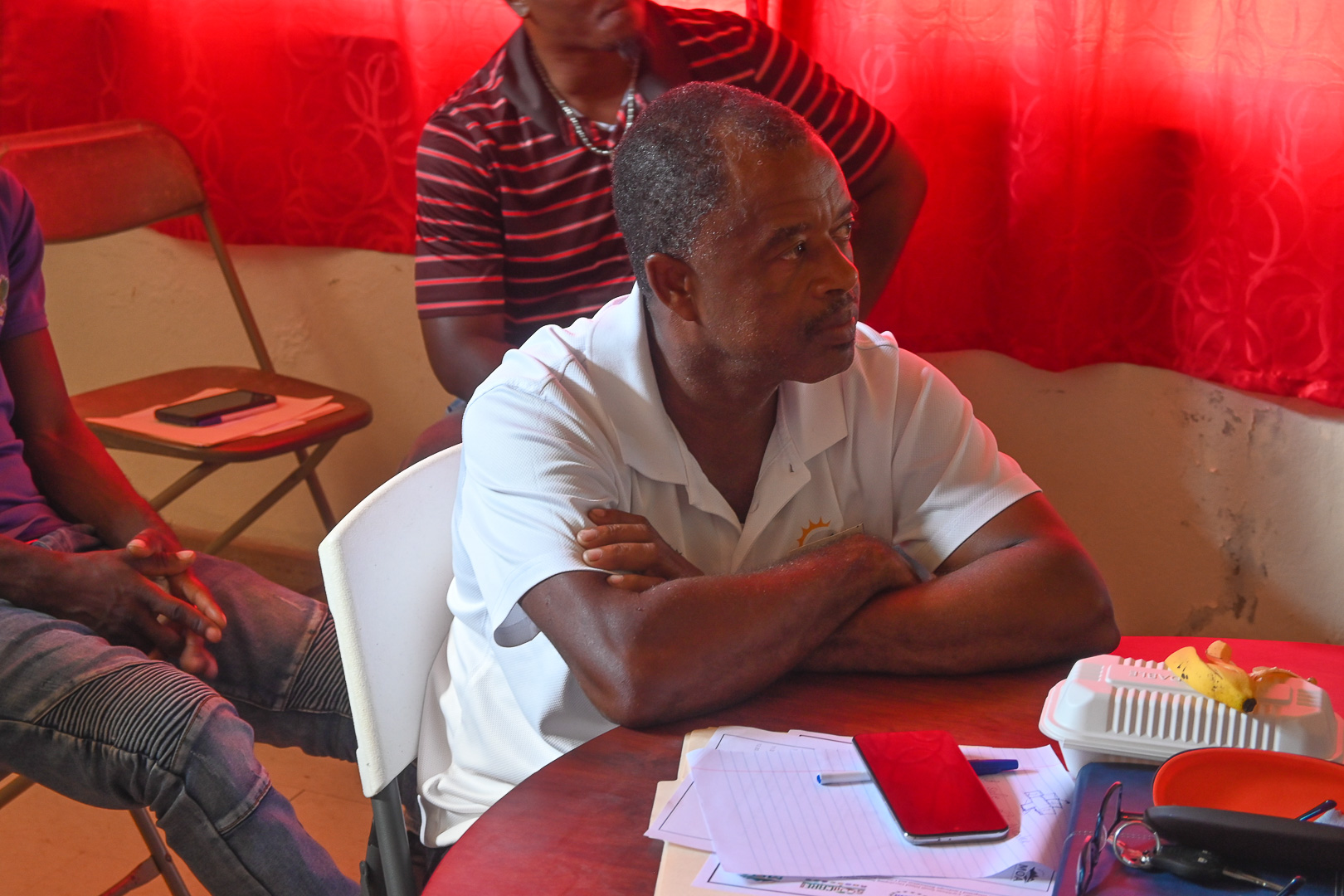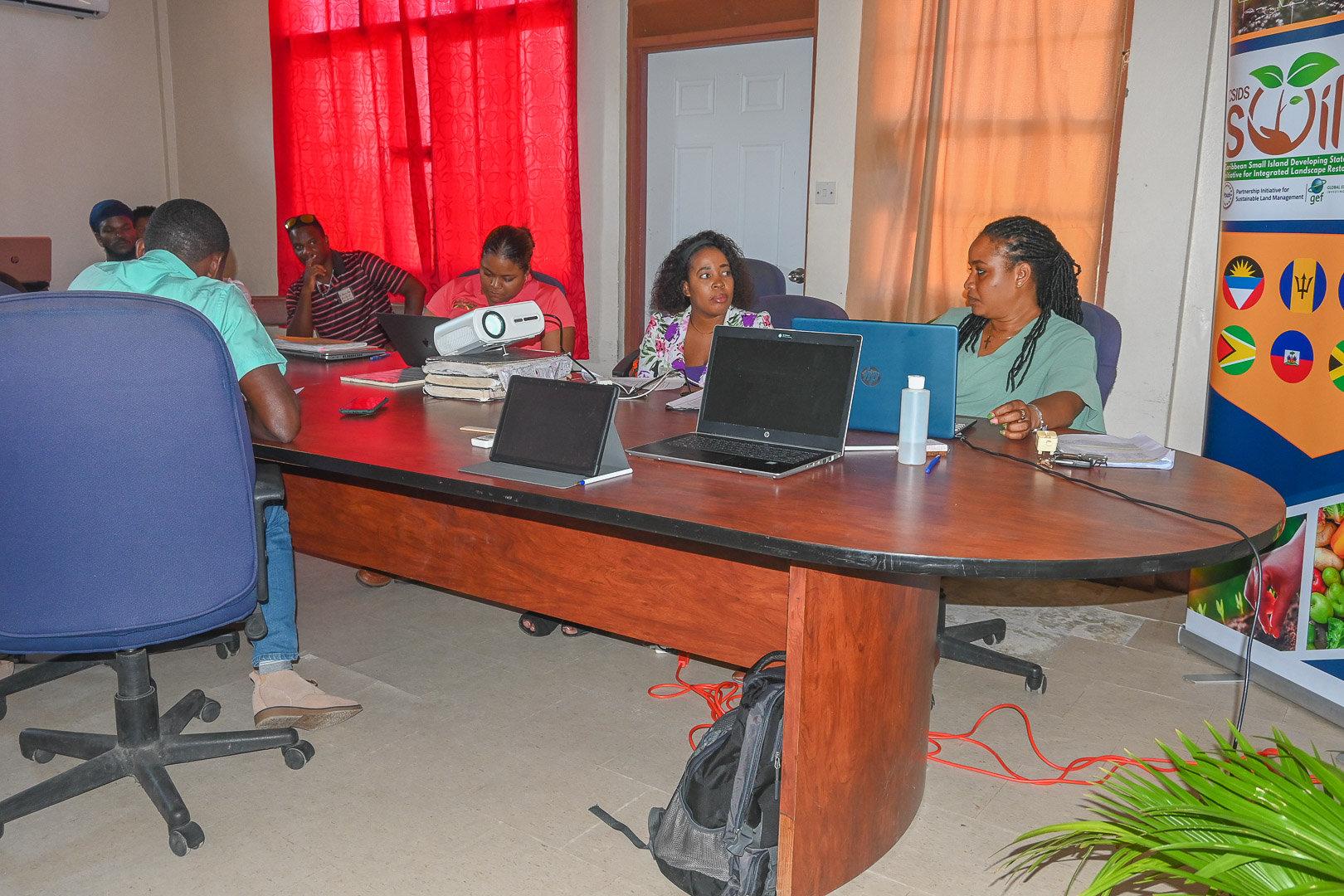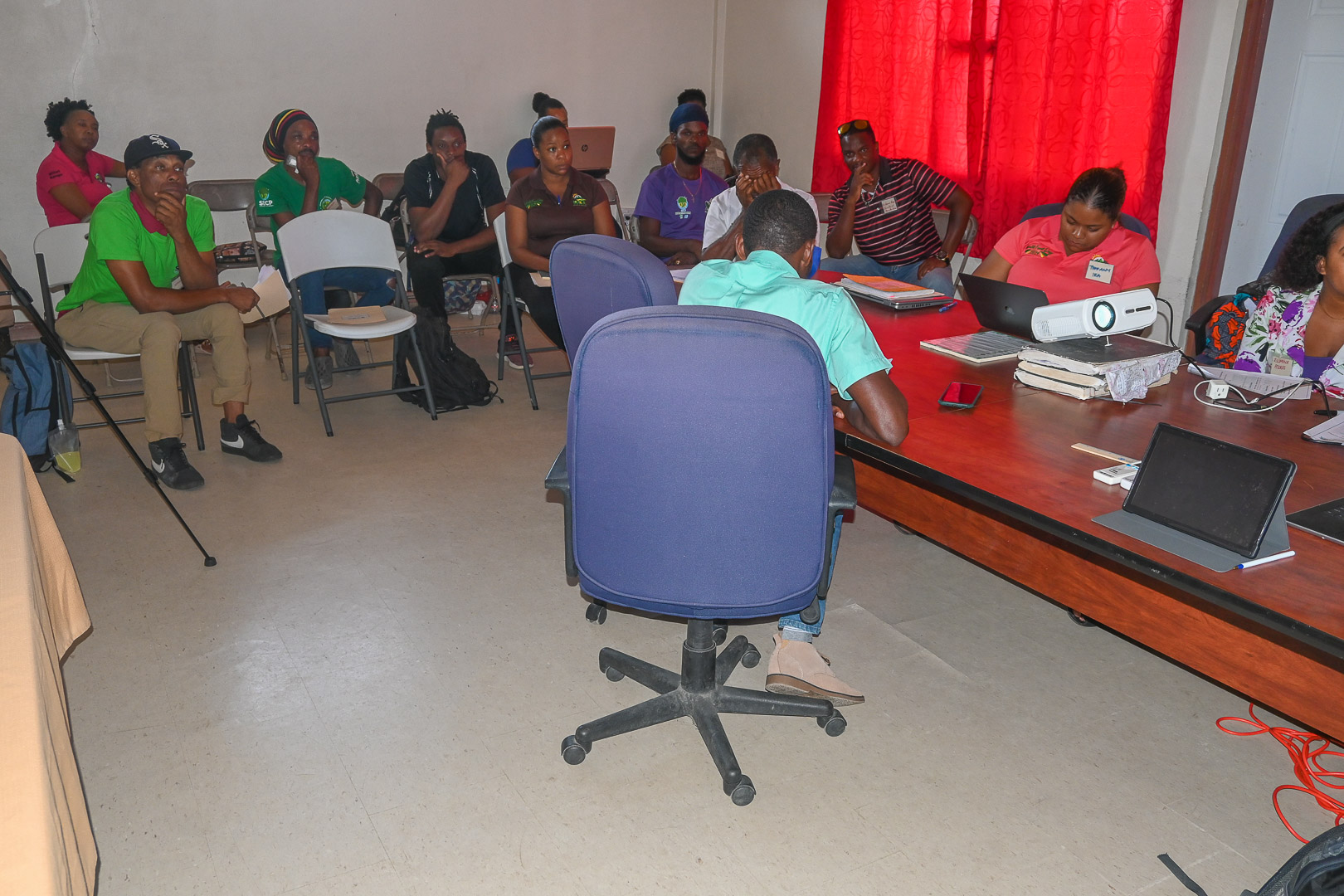
Climate Smart Agriculture Compliance (C-SAC) ‘Training of Trainers’ Workshop
November 14 2024
Castries, St. Lucia, 14 November 2024— The Ministry of Agriculture, Fisheries, Food Security, and Rural Development and the Partnership Initiative for Sustainable Land Management (PISLM) for Caribbean small island developing states (CSIDS) hosted the Climate-Smart Agriculture Compliance ‘Training of Trainers’ 2-day workshop on November 12th and 13th, 2024. Thirty stakeholders, including Extension and Advisory Service Officers, Forest Officers, Policymakers, and Environmental Advocates, participated in this highly anticipated workshop.
PISLM has endorsed the Climate Smart Agriculture Compliance (C-SAC) Tool as the de facto standard for assessing Climate-Smart agriculture in the Caribbean. In this regard, technical officers from the eight (8) participating countries were trained in C-SAC with the goal of replicating the training model in their respective countries. This ensured the knowledge and experiences to propel C-SAC in the CSIDS to be transferred to and implemented by the farmers and agriculture stakeholders at the national and regional levels.
Climate Smart Agriculture is gaining international interest as a strategy to reduce climate change effects. The C-SAC tool is a registered and legally acceptable method for assessing compliance levels for projects, procedures, and goods. It gives organizations a thorough way to understand the benefits of climate-smart agriculture, enabling them to assess farmers’ methods and create sustainable brands.
The objectives of the workshop include:
- Train participants in Climate-Smart Agriculture
- Increase the ability of trainers to validate climate-smart practices using the C-SAC compliant tool.
- Evaluate farmers’ level of C-SAC compliance through hands-on activities.
The climate-smart agriculture initiative encourages sustainable land management and restoration of degraded land. Under the CSIDS-SOILCARE phase 1 project, countries have identified hotspots for interventions. There are three (3) main types of interventions identified in this regard:
- Creating and preserving model farms; 2. Better living conditions as a result of economic activity; and 3. Expanding the ecosystem’s functions and planting new trees
C-SAC has 5 categories of compliance and provides a replicable analysis matrix using scalar approaches to convert qualitative assessments into a numeric compliance scale. There are a total of twenty (20) questions for every project, procedure, or product being reviewed; non-compliance is indicated by a score of less than forty (40).
For CSIDS to successfully handle the challenges posed by climate change and guarantee food security, C-SAC is essential. This allows organizations to evaluate farmers’ climate-smart practices and create sustainable brands.
One of the trainers from the Ministry of Agriculture’s Extension and Advisory Service, Ms. Hyacinth Ford, stated the Ministry of Agriculture is aware of the importance of Food Security and will embark on this continuous journey of sensitization of officers and farmers. In light of this, C-SAC Tool training will play an integral role as an indicator to the Ministry in sourcing data from farms and its impact on the environment.

